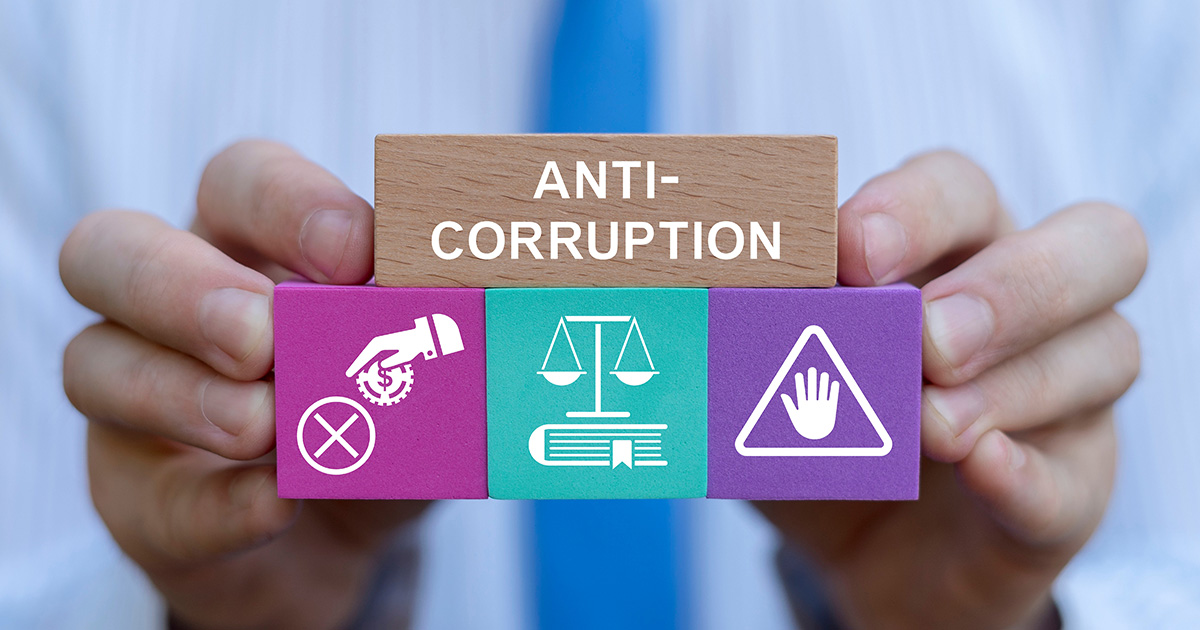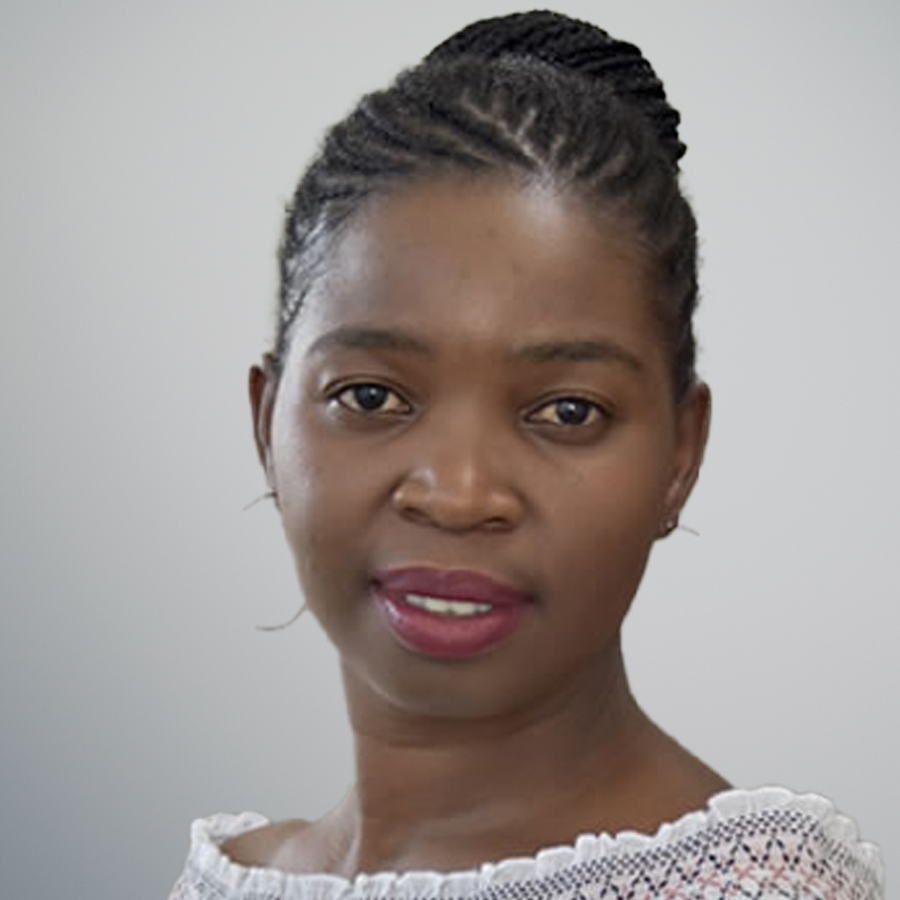11 July 2025
On the occasion of African Anti-Corruption Day 2025, the Centre for Human Rights, Faculty of Law, University of Pretoria, joins the continent in reaffirming its commitment to promoting transparency, accountability, and human dignity in the fight against corruption. This year’s theme: ‘Promoting Human Dignity in the Fight Against Corruption’, rightly situates anti-corruption as a human rights imperative. Corruption is a legal and economic issue, which is also a direct assault on the dignity, rights, and welfare of African people. It undermines public trust, weakens the rule of law, and deprives communities of essential services, including access to justice, health care, education, water, and housing. Human dignity is enshrined in the African Charter on Human and Peoples’ Rights, the Constitutive Act of the African Union, and other international human rights standards, including the Universal Declaration of Human Rights (UDHR).
Human dignity is also embedded across Africa’s normative human rights framework, including the AU Convention on Preventing and Combating Corruption (AUCPCC). The AUCPCC is a foundational instrument that recognises the interdependence of governance, integrity, and human rights. It was established as a landmark regional instrument designed to facilitate a strategic, harmonised, and collective response by African States to the pervasive challenge of corruption and its far-reaching implications for sustainable development, good governance, and the rule of law. It entered into force on 5 August 2006, and as of July 2025, 48 Member States have ratified the AUCPCC. The seven Member States that are yet to ratify the Convention are: Central African Republic, Cape Verde, Djibouti, Eritrea, Eswatini, Somalia, South Sudan.
While this widespread ratification reflects commendable political commitment, it is equally imperative to ensure comprehensive and effective implementation, especially of Article 5, which outlines a robust set of preventive and protective measures. These include: the criminalisation of a wide range of corruption-related offences; the establishment or strengthening of independent national anti-corruption bodies; the implementation of rigorous accounting, auditing, procurement, and oversight systems in public administration; and the development of educational and awareness-raising initiatives to promote a culture of integrity. Article 5 also mandates legal protections for informants and witnesses, including the preservation of their identities and protection against retaliation. It further requires States to create an enabling environment for individuals to report corruption without fear of reprisal, while also establishing penalties for false or malicious accusations. Collectively, these measures represent a comprehensive framework to entrench accountability, transparency, and ethical governance.
Pillars of Anti-Corruption in the Information Age
The rights to freedom of expression and access to information are essential for preventing and combating corruption. These rights are guaranteed under Article 9 of the African Charter, and reaffirmed in multiple AU treaties including the African Youth Charter, the African Charter on Democracy, Elections and Governance, and the Protocol on the Rights of Women in Africa. They are individual rights and are instrumental in the realisation of all other rights. They enable the public to hold governments accountable; participate meaningfully in public life; expose wrongdoing; and advocate for justice and social change.
In the digital age, new technologies, open government data, and independent media play a significant role in promoting transparency, empowering citizens, and modernising public institutions. The Centre acknowledges the Declaration of Principles on Freedom of Expression and Access to Information in Africa, which recognises that “[d]igital technologies can enhance access to information, support innovation, and facilitate the free flow of ideas... thereby contributing to good governance and socio-economic transformation.”
We further emphasise that:
- Open government data increases transparency and allows citizens, researchers, and watchdogs to scrutinise public spending and resource allocation.
- Whistleblowing platforms and secure reporting tools offer safer avenues for disclosure of wrongdoing.
- Digital journalism, despite increasing repression, remains critical in exposing systemic corruption and promoting accountability.
- Artificial intelligence, when ethically designed, can assist in detecting procurement anomalies, financial fraud, and misuse of public resources.
We urge States to invest in digital infrastructure and protect online freedoms, ensuring that the digital space remains a platform for accountability, innovation, and civic expression, not a tool for censorship or undue surveillance.
Whistleblower Protection
The Centre reaffirms that whistleblowers are defenders of human dignity and public integrity. Their role is recognised in the AUCPCC, the UN Convention against Corruption, the ECOWAS Protocol on the Fight against Corruption, the Tshwane Principles, and the Declaration of Principles on Freedom of Expression and Access to Information, particularly Principle 35 on protected disclosures. However, despite this legal recognition, across Africa, whistleblowers continue to suffer retaliation, imprisonment, and even assassination. We remain deeply concerned by the misuse of legal systems to silence those who expose corruption in good faith, and the persistent climate of fear that inhibits disclosures.
A Call to Action
The Centre for Human Rights calls upon African Union Member States, civil society, the private sector, media, academia, and all actors to take bold and sustained action to advance dignity-centred, rights-based anti-corruption efforts.
States must:
- Adopt and implement national whistleblower protection laws aligned with Principle 35 of the ACHPR 2019 Declaration and Article 5 of the AUCPCC.
- Desist from criminalising defamation, “false information”, or digital expression used to expose corruption and wrongdoing.
- Protect journalists and civil society actors who investigate corruption, including ensuring judicial safeguards against forced disclosure of sources.
- Establish independent bodies to oversee protected disclosures and ensure access to remedies for victims of reprisals.
- Promote open government by ensuring timely, affordable access to public information, particularly through digital platforms.
- Ratify and implement the AUCPCC and other related human rights instruments without delay.
Civil society, media, and academia should:
- Strengthen civic education on whistleblowing, access to information, freedom of expression, and the harms of corruption.
- Build secure digital tools and platforms for safe reporting.
- Document and share best practices in open governance, transparency, and ethical leadership.
- Promote responsible digital journalism and amplify voices of whistleblowers and communities most affected by corruption.
This African Anti-Corruption Day must be a moment of renewed resolve. Let us build an Africa where dignity, not corruption, defines public service. An Africa where information flows freely, voices speak boldly, and truth-tellers are protected, not punished. An Africa where digital innovation serves human rights, not repression. The Centre for Human Rights stands in solidarity with all those who courageously expose corruption, and with all communities striving for justice, equity, and dignity across the continent.
Let us make the fight against corruption a fight for human rights, and a future rooted in dignity.
For more information:
Expression, Information and Digital Rights Unit
Tel: +27 (0) 12 420 4199
hlengiwe.dube@up.ac.za



